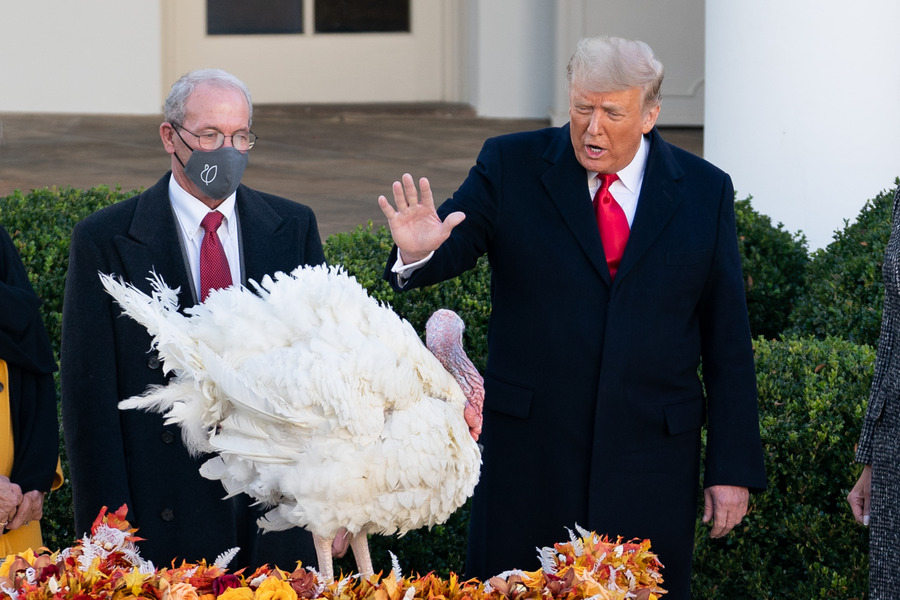Are People Overreading the White Paper on Imminence?
I received an email yesterday responding to Susan and my post, in which we suggested that that the White Paper had little new in it. Specifically, the email argued that Susan and I had understated the degree to which the White Paper broke new ground on the question of imminence. We have heard this complaint before, and the question is an important one. After all, the imminence discussion is the only major area---at least in the public debate---where the White Paper even arguably makes a large marginal contribution.
Published by The Lawfare Institute
in Cooperation With

I received an email yesterday responding to Susan and my post, in which we suggested that that the White Paper had little new in it. Specifically, the email argued that Susan and I had understated the degree to which the White Paper broke new ground on the question of imminence. We have heard this complaint before, and the question is an important one. After all, the imminence discussion is the only major area---at least in the public debate---where the White Paper even arguably makes a large marginal contribution. So the question goes to whether the public controversy over the memo is a tempest in a teapot or just a tempest. The author of the email preferred I not make it public, but the argument was similar to one that Kevin Jon Heller has made in public. Shortly after we posted our piece, Kevin posted the following in Facebook comments:
I strongly disagree with this claim: "[NBC News reporter Michael] Isikoff then says, rather more tendentiously, that the document authorizes the killing of U.S. citizens who are top operational Al Qaeda figures 'even if there is no intelligence indicating they are engaged in an active plot to attack the U.S.' This latter point is, to put it mildly, a stretch." That is most certainly not a stretch. Indeed, you quote the language that explicitly supports it. As the White Paper makes clear, the U.S. reserves the right to kill a US citizen even if it has no evidence that he is planning a future attack, as long as he has "recently" been involved in similar activities and has not "renounced or abandoned" those activities. (Whatever that means.) Put more simply: if you have recently done something bad, we can presume you are going to do bad things again and kill you, even if we don't have any evidence that you are. That claim, which shifts the burden of proof onto the US citizen who has been involved in previous hostile activities to prove that he is no longer a threat, is indeed a "revolutionary advance" over Holder's speech in March. Nothing in that speech suggested that the U.S. no longer needs to have any evidence that a U.S. citizen is planning a future attack; it simply broadened the window in which an attack can (in the U.S. view) be considered imminent.
I think both Kevin and my correspondent yesterday are overreading the memo on imminence---as are a lot of people in the press and a lot of commentators. So for whatever it's worth, here is how I read it. I don't think it's right to say---as Isikoff did in his article and as Kevin defended---that the memo authorizes the killing of top Al Qaeda leaders "even if there is no intelligence indicating they are engaged in an active plot to attack the U.S." The memo, rather, says something more modest: that a finding of imminence does not require "clear evidence" that "a specific attack" will take place in the "immediate future." It goes on to say that for those senior Al Qaeda leaders who are "continually planning attacks," one has to consider the window of opportunity available in which to act against them and the fact that another window may not open before an attack comes to fruition. The result is that a finding of imminence for such a senior-level Al Qaeda operational leader can be based on a finding that such a figure is "personally and continually" planning such attacks---not on a finding that any one planned attack is nearing ripeness. In other words, as a general proposition, far from saying that there can be targeting in the absence of evidence of a plot, the memo requires a conclusion that the target is personally and in an ongoing fashion engaged in plots against the United States. This is why Susan and I regarded Isikoff's characterization of the memo's treatment of imminence as a stretch.
a high-level official could conclude, for example, that an individual poses an "imminent threat" of violent attack against the United States where he is an operational leader of Al Qa'ida or an associated force and is personally continually involved in planning terrorist attacks against the United States. Moreover, where the al-Qa’ida member in question has recently been involved in activities posing an imminent threat of violent attack against the United States, and there is no evidence suggesting that he has renounced or abandoned such activities, that member’s involvement in al-Qa’ida’s continuing terrorist campaign against the United States would support the conclusion that the member poses an imminent threat.
With respect, I think you are underreading the relevant language. The "Moreover" matters---it divides individuals posing "imminent threats" into two discrete categories: those who have been "personally and continually involved in planning terrorist attacks against the United States"; and those who have not been personally and continually involved, but who have recently been involved and have not renounced or abandoned those activities.





